The editor-in-chief of the newspaper, Andrii Fomin, prepared the pilot issue of Dvorichanskyi Krai for his front-line community in the Kharkiv Region. The journalist survived the occupation, pressure, and intimidation from the Russian military and collaborators but was eventually able to evacuate to the territory controlled by Ukraine.
Currently, a significant part of the community, including its center, the village of Dvorichna, has been liberated. The pilot issue, released thanks to partners’ funds within a limited issue, is already being distributed around the community. And the National Union of Journalists of Ukraine (NUJU) assisted the editors in printing the newspaper’s first few issues.
“Our publication turned 92 years old on July 4,” Andrii Fomin told the NUJU. “This is a former district newspaper. I have been working as its editor since 2012. In 2018, we went through nationalization. When the pre-war official population of the district, which later became a community, was 16,500 (although, in reality, the number was lower), we had a circulation of 1,500 copies. In addition, about 300 people subscribed to the electronic form of our newspaper as we made a newsletter in pdf format. The team consisted of five people, including three journalists. They also had additional income from printing services. Finally, I tried to create an FM radio, and everything was fine before the broadcast started.”
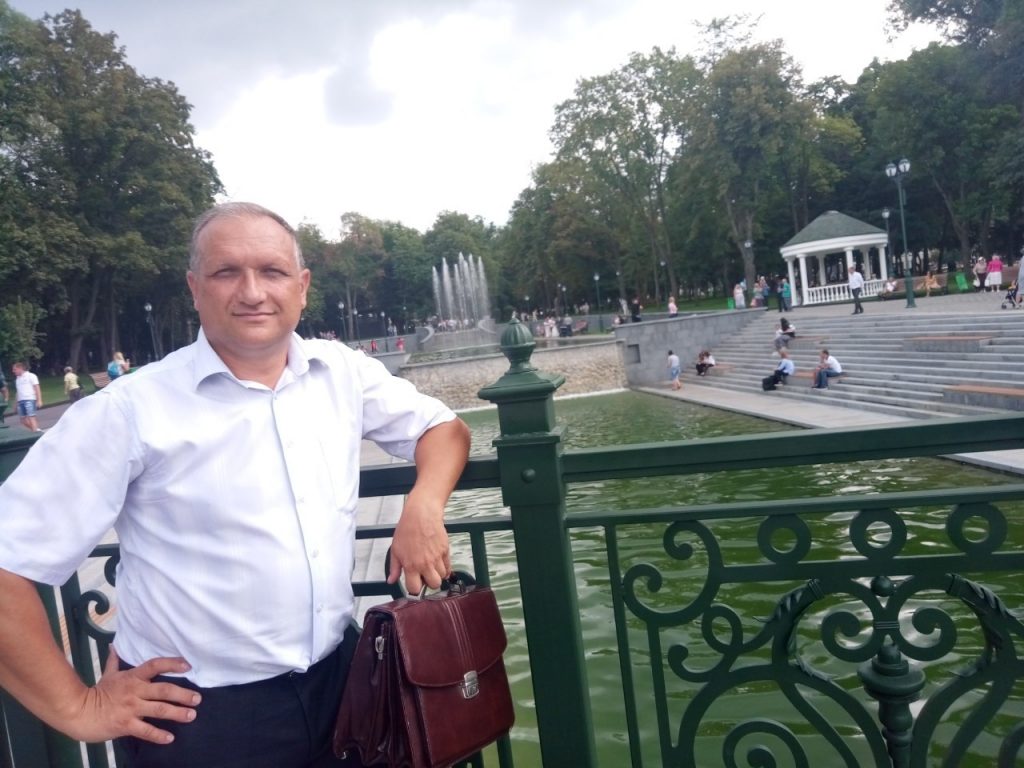
The occupation of Dvorichna put an end to regular work. The last issue of the newspaper was prepared for February 24, 2022. Still, it did not reach the readers: that day, after lunch, enemy military machinery was already standing on the village streets.
Russian TV channels immediately appeared on TV, and Ukrainian ones disappeared. Russian television propaganda impressed the community residents, mostly simple peasants, with their assertiveness and quality. This immediately affected the worldview of some residents. Unfortunately, quite a lot of collaborators immediately appeared, especially among officials and law enforcement officers. Neighbors began to betray their neighbors…
Meanwhile, the collaborators continued to exert pressure urging to think faster. The editor understood that if he disagreed, the occupiers would start publishing the newspaper by other means. To make this task more difficult for them, he and his colleagues loaded the editorial archive and documentation into the car and took it home. Someone saw this – and in the evening, when the curfew began, the deputy head of the occupation administration came to him accompanied by two Russian soldiers. They said that they understood that Andrii Fomin did not want to cooperate. They were forced to hand over the keys to the newsroom, and the removed archives were ordered to be returned.
After leaving Russia, Andrii Fomin finally breathed a sigh of relief. Thanks to volunteers, he was able to rest and recuperate in Warsaw for five days, so he returned to Ukraine via the Czech Republic and Slovakia. Now, he lives in Uzhhorod.
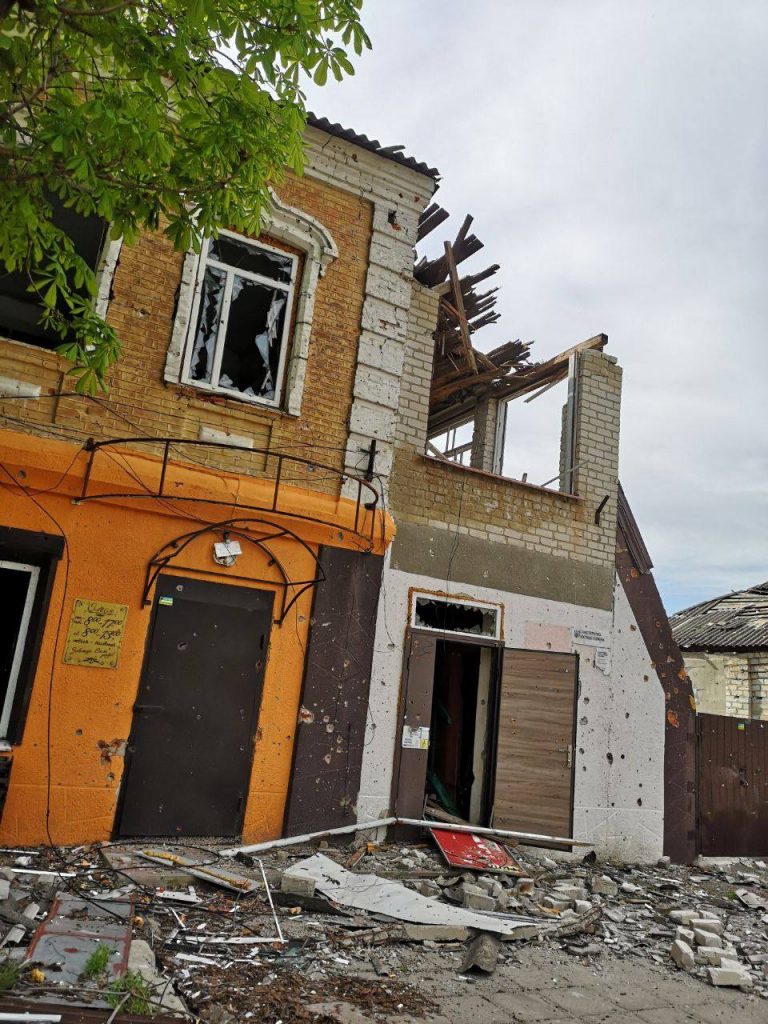
Andrii Fomin tells how devastating the occupation affects psychological well-being. The journalist himself calls the state of confusion in which he was, and partly still is a shock. “For several months, I did not want to do anything, make decisions; my hands fell…”
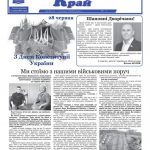 “I consider myself primarily a photojournalist. But I could not bring myself to pick up a camera for a long time. Honestly, I still can’t get out of that state properly. But, I am subscribed to the NUJU’s telegram channel. I see that other editors are taking on the task of restoring their newspapers. The NUJU helps them. They also began to shame me: “How can you?…” And the head of our community says: “It would be good to publish a newspaper.” It is clear that it is good as there are no communications there. But I don’t have anything, except the fact that I use my son’s computer. The local government can’t help,” Andrii Fomin says. “But the desire to make a newspaper appeared! I put a typesetting program on my son’s computer, collected information – and prepared a pilot issue. So far, I have done everything on my own.”
“I consider myself primarily a photojournalist. But I could not bring myself to pick up a camera for a long time. Honestly, I still can’t get out of that state properly. But, I am subscribed to the NUJU’s telegram channel. I see that other editors are taking on the task of restoring their newspapers. The NUJU helps them. They also began to shame me: “How can you?…” And the head of our community says: “It would be good to publish a newspaper.” It is clear that it is good as there are no communications there. But I don’t have anything, except the fact that I use my son’s computer. The local government can’t help,” Andrii Fomin says. “But the desire to make a newspaper appeared! I put a typesetting program on my son’s computer, collected information – and prepared a pilot issue. So far, I have done everything on my own.”
The pilot issue was printed at the Balakliya printing house, and the funds for the 500-copy circulation were allocated by a familiar head of an agricultural enterprise. In addition, Andrii Fomin applied for support from the NUJU and has already received funds for the first few issues. There has been an idea for some time to make a joint newspaper with the neighboring communities, Velykyi Burluk and Shevchenkivske: the employees of the local newsrooms have gone abroad, and people need information.
“I was sent photos of happy compatriots who received our newspaper! I look at their faces, and I can hardly hold back tears,” says the journalist. “They write, respond. So, I have the mood to continue!”
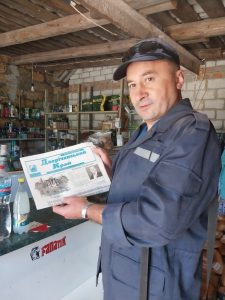
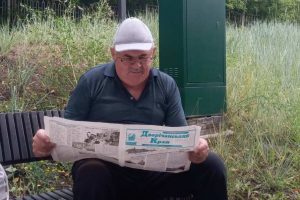
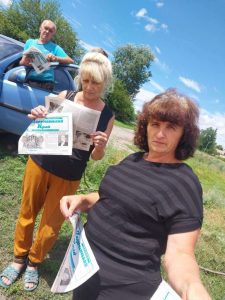
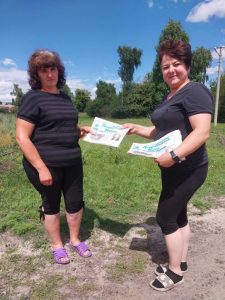
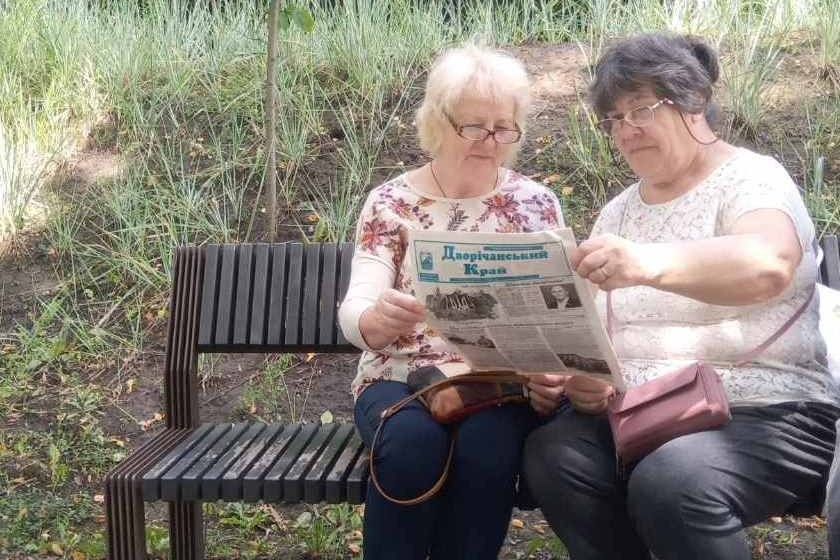
Maksym Stepanov, NUJU Information Service

 THE NATIONAL UNION OF
JOURNALISTS OF UKRAINE
THE NATIONAL UNION OF
JOURNALISTS OF UKRAINE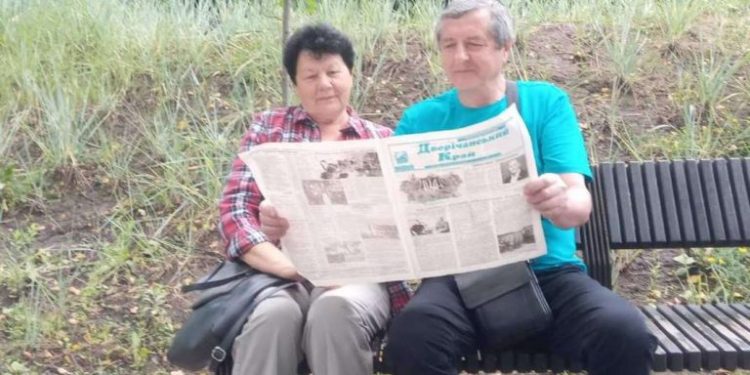
















Discussion about this post